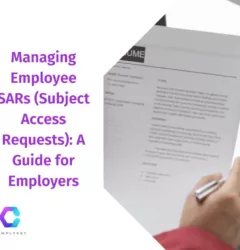

One of the key features of data request management software is its ability to provide comprehensive reporting on staff workloads and the time spent on handling requests. By leveraging data analytics capabilities, this software can track various metrics, such as the number of requests processed, response times, and staff productivity. This valuable insight allows organizations to identify bottlenecks in the process, allocate resources more efficiently, and improve overall workflow management.
Moreover, data request management software enables organizations to manage data requests efficiently which is important for organizations across various sectors. Whether it’s a government agency, a healthcare facility, or a corporate entity, the ability to handle records requests swiftly and effectively can make a significant difference in operational efficiency and compliance. Traditionally, managing records requests involved manual processes that were time-consuming and prone to errors. However, with the advent of data request management software, organizations can now streamline this process and gain valuable insights into staff workloads and time spent replying to requests.
Furthermore, the integration of self-service capabilities via a public disclosure log adds another layer of efficiency to the records request management process. With a user-friendly interface accessible to the public, individuals can submit requests electronically, track their status in real-time, and access documents once they are released. This self-service functionality not only reduces the administrative burden on staff but also enhances transparency and accessibility for requesters.
Data request management software benefits:
Improved Compliance: By centralizing records management and automating compliance checks, organizations can ensure adherence to regulatory requirements and mitigate the risk of non-compliance penalties.
Enhanced Security: Records request management software often includes robust security features, such as encryption and access controls, to safeguard sensitive information and protect against data breaches.
Cost Savings: By reducing the time and resources required to process requests manually, organizations can realize cost savings and allocate resources to other critical areas of operation.
Enhanced Customer Service: With faster response times and improved transparency, organizations can enhance the overall experience for requesters and build trust with stakeholders.
Here is an example of the benefits of data request management software in action:
A government agency receives a high volume of records requests from citizens and journalists seeking access to public information. Before implementing records request management software, the agency struggled to keep up with the influx of requests, resulting in delayed responses and frustrated requesters.
However, after adopting the software, the agency experienced a significant improvement in efficiency and transparency. Staff members were able to process requests more quickly, thanks to automated workflows and real-time reporting on workloads. Requesters also benefited from the self-service portal, which allowed them to submit and track requests online, reducing the need for manual intervention.
Data request management software plays a crucial role in modernizing and streamlining the data management process. By providing insights into staff workloads, automating workflows, and integrating self-service capabilities, this software enables organizations to handle requests more efficiently, ensure compliance, and enhance transparency.


